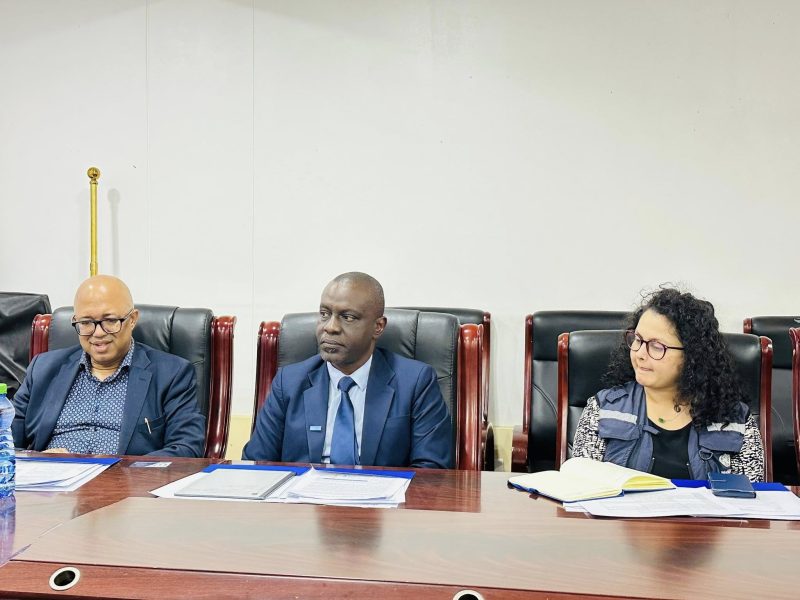
The Acting Regional Director for Africa at the World Health Organization (WHO), Dr. Chikwe Ihekweazu, has concluded a high-level visit to South Sudan aimed at strengthening health support in the face of mounting humanitarian emergencies.
During his visit on Wednesday, Dr. Ihekweazu met with key government and humanitarian stakeholders in Juba, including the Acting Minister of Health, James Hoth Mai, Acting UN Humanitarian Coordinator Marie Helene Verney, and the European Union Ambassador to South Sudan, Timo Olkkonen.
The discussions focused on addressing South Sudan’s escalating humanitarian crisis, driven by widespread food insecurity, malnutrition, displacement, and deteriorating livelihoods. Dr. Ihekweazu commended healthcare workers for their bravery and dedication during such turbulent times.
“I congratulate the healthcare workers for their commitment, compassion, and courage in the delivery of health services during these difficult times of crisis,” said Dr. Ihekweazu.
“I also thank the Government of South Sudan for its commitment to the health and well-being of the people, as well as our partners who have provided vital support to the health sector. Together, our unified front is the last line of defense against a preventable escalation of disease and instability.”
South Sudan has experienced a surge in political tensions this year, particularly since March 2025, with clashes intensifying in Upper Nile State between government forces and armed groups reportedly allied to the SPLM/A-IO. The violence has led to widespread displacement, casualties, and attacks on health workers and facilities.
Since January 2025, at least eight attacks on healthcare facilities have been reported, resulting in the deaths of medical personnel and the looting of vital medical supplies. These incidents have severely disrupted access to essential health services for thousands of civilians.
Dr. Ihekweazu highlighted the WHO’s ongoing collaboration with the Ministry of Health to maintain and expand healthcare services across the country.
“We are deploying rapid response teams, prepositioning medical supplies, coordinating outbreak responses, and working alongside national and humanitarian partners. WHO is also training health workers and communities to provide services in hard-to-reach areas,” he noted.
He further warned that health challenges in South Sudan are growing and underscored the need for sustained funding and collective support—both from within the country and international partners—to ensure continued healthcare delivery.
“Continued, timely support will preserve hard-won gains and safeguard regional health security,” Dr. Ihekweazu concluded.

